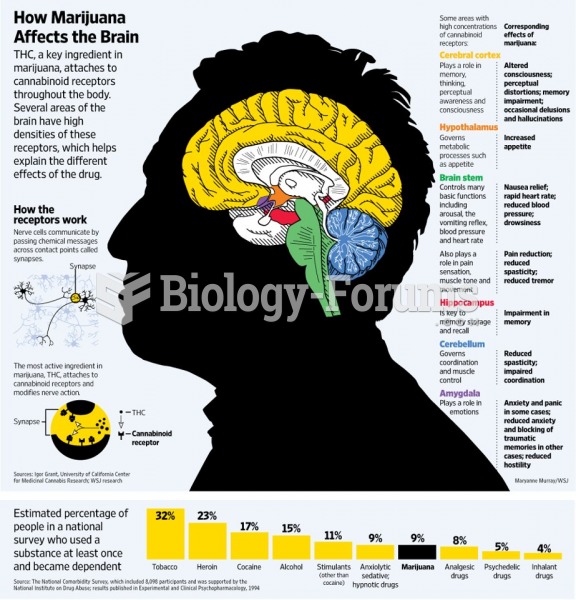|
|
|
Giardia is one of the most common intestinal parasites worldwide, and infects up to 20% of the world population, mostly in poorer countries with inadequate sanitation. Infections are most common in children, though chronic Giardia is more common in adults.
Pubic lice (crabs) are usually spread through sexual contact. You cannot catch them by using a public toilet.
After 5 years of being diagnosed with rheumatoid arthritis, one every three patients will no longer be able to work.
Approximately 25% of all reported medication errors result from some kind of name confusion.
The average person is easily confused by the terms pharmaceutics and pharmacology, thinking they are one and the same. Whereas pharmaceutics is the science of preparing and dispensing drugs (otherwise known as the science of pharmacy), pharmacology is the study of medications.







